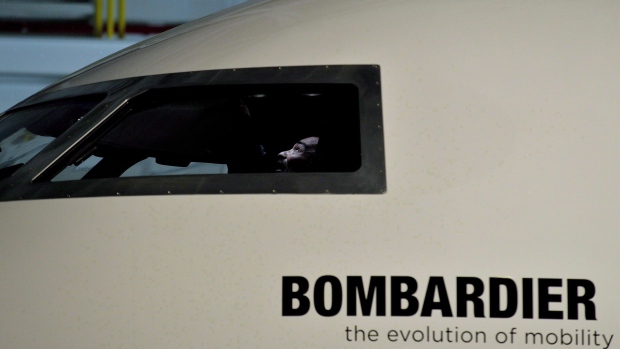Sep 1, 2016
Bombardier to pause production of global luxury jets in 2017
, BNN Bloomberg

Bombardier Inc. (BBDb.TO) plans to pause production of its Global 5000/6000 luxury jets for part of next year, the plane and train maker confirmed to BNN, highlighting the business jet industry’s continuing struggles.
While the Montreal-based company did not specify how long the halts would be or how they would be implemented, the company described them as “minor” and similar to a furlough.
“We’re trying to limit the number of days as much as possible,” a Bombardier spokesperson told BNN.
The change in Bombardier’s production plan was first reported by The Globe and Mail.
The furloughs at Bombardier's global completions center in Montreal follow a decision in 2015 by the Canadian plane and train maker to cut production of Global 5000 and 6000 jets, citing weak demand from China, Latin America and Russia.
"It's a very common practice to adjust our manufacturing strategy and sequencing to ensure we manage our inventories and costs," Bombardier spokesman Mark Masluch told Reuters.
"We will work collaboratively with our union to ensure we take steps to mitigate impact to our workforce."
He said the furloughs in completion work would not have any impact on Bombardier's ability to honour customer orders.
Bombardier made the announcement to employees on Wednesday, according to Yannick Houle, president of Unifor Local 62, which represents employees at Bombardier’s Dorval finishing centre.
The overall business jet industry “is not in good health,” Houle said.
Demand for business jets has declined in recent years amid sluggish global economic growth.
Still, in May, Bombardier said in its long-term forecast that it expected a pickup in business-jet demand due to growth in emerging markets. The company predicted up to 8,300 new business jet deliveries, worth about US$250 billion, between 2016 and 2025.
Meanwhile, Bombardier Transportation says it will deliver a light rail prototype for Toronto's Eglinton Crosstown transit line in two to three weeks after missing an Aug. 31 delivery deadline.
The manufacturer says the delay has no impact on delivery of trains for the US$5.3-billion transit line, which is expected to enter service in 2021.
With files from Reuters, The Canadian Press





